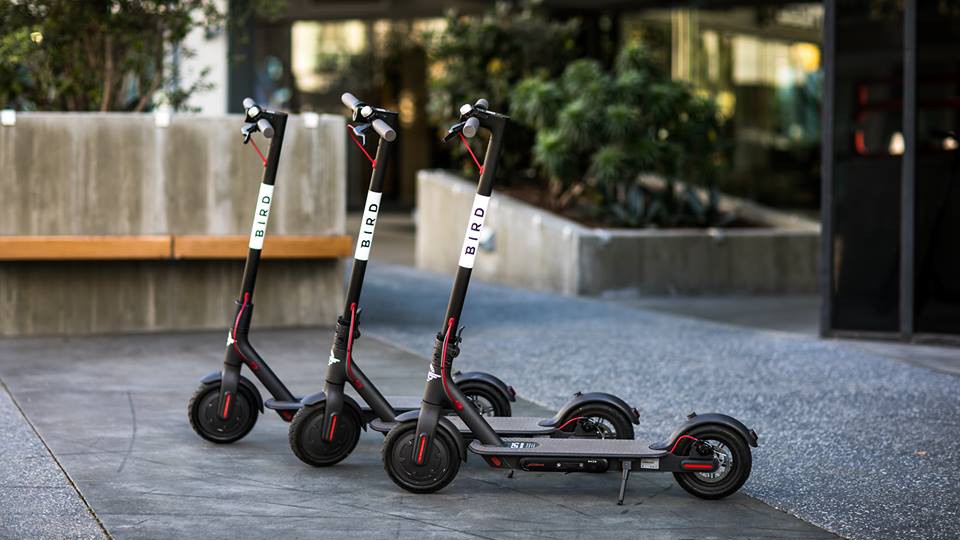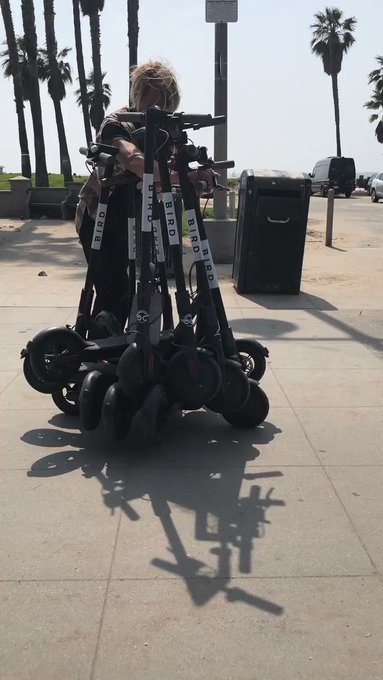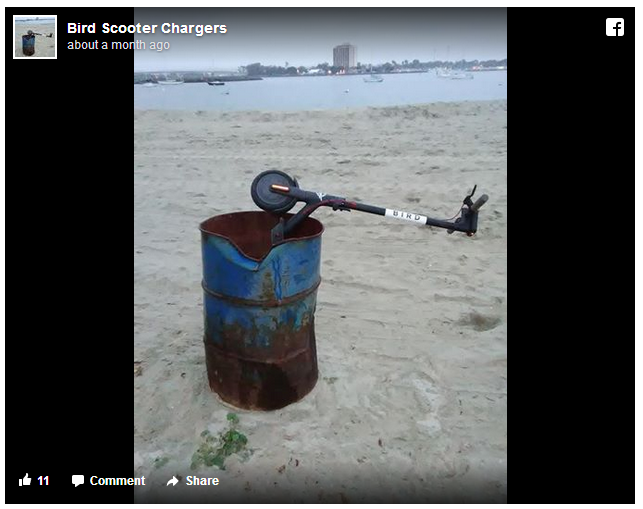nivek
As Above So Below
Who Charges those Electric Scooter Birds?

Every afternoon around 4 p.m., when school lets out, Brandon, an 18-year-old high-school senior in Los Angeles who asked to be referred to only by his first name, goes “Bird hunting.” He heads for his minivan and, on the drive home, he’ll swing through convenient neighborhoods, picking up about 13 Bird electric scooters along the way, tossing them into the back of his car.
“I have a whole system,” he says. “I’ll go home, put the 13 I initially caught on the chargers. They’ll charge for about three hours until around 7 or 8 p.m.”—when Bird makes more scooters available for charger pickup. “Then I’ll go back out.”
Over the course of the next few hours, Brandon loops around his Santa Monica, California, neighborhood collecting as many scooters as possible. He brings back his bounty and, as his parents sleep, neatly sets them up to charge in batches overnight.
The next morning he wakes up early, eats breakfast, and drops them off in groups of three at designated Bird Nests, designated pickup areas for scooters, on his way to school. For performing this service, Bird pays Brandon, a contract worker, up to several hundred dollars a night. On one particularly successful night, Brandon brought home $600.

Bird is a scooter-sharing company that launched in 2017 and has been dubbed the “Uber of scooters.” Its goal is to alleviate congestion and allow people an easy way to travel quickly for short distances of just a few miles. Riders can locate and unlock scooters using the company’s smartphone app, and after paying the $1 unlocking fee are charged 15 cents per minute during use.
Birds are available in a growing number of American cities including Austin, Texas; Nashville, Tennessee; Los Angeles; San Francisco; Scottsdale, Arizona; Washington D.C.; and Atlanta. The scooters are all battery-powered and dockless, so they can be picked up or dropped off anywhere.
But when night falls, what most riders don’t realize is that the scooters themselves are charged by a contract workforce. These people are known as “Bird hunters” or “chargers,” and they’re growing exponentially in number.


Every afternoon around 4 p.m., when school lets out, Brandon, an 18-year-old high-school senior in Los Angeles who asked to be referred to only by his first name, goes “Bird hunting.” He heads for his minivan and, on the drive home, he’ll swing through convenient neighborhoods, picking up about 13 Bird electric scooters along the way, tossing them into the back of his car.
“I have a whole system,” he says. “I’ll go home, put the 13 I initially caught on the chargers. They’ll charge for about three hours until around 7 or 8 p.m.”—when Bird makes more scooters available for charger pickup. “Then I’ll go back out.”
Over the course of the next few hours, Brandon loops around his Santa Monica, California, neighborhood collecting as many scooters as possible. He brings back his bounty and, as his parents sleep, neatly sets them up to charge in batches overnight.
The next morning he wakes up early, eats breakfast, and drops them off in groups of three at designated Bird Nests, designated pickup areas for scooters, on his way to school. For performing this service, Bird pays Brandon, a contract worker, up to several hundred dollars a night. On one particularly successful night, Brandon brought home $600.

Bird is a scooter-sharing company that launched in 2017 and has been dubbed the “Uber of scooters.” Its goal is to alleviate congestion and allow people an easy way to travel quickly for short distances of just a few miles. Riders can locate and unlock scooters using the company’s smartphone app, and after paying the $1 unlocking fee are charged 15 cents per minute during use.
Birds are available in a growing number of American cities including Austin, Texas; Nashville, Tennessee; Los Angeles; San Francisco; Scottsdale, Arizona; Washington D.C.; and Atlanta. The scooters are all battery-powered and dockless, so they can be picked up or dropped off anywhere.
But when night falls, what most riders don’t realize is that the scooters themselves are charged by a contract workforce. These people are known as “Bird hunters” or “chargers,” and they’re growing exponentially in number.

